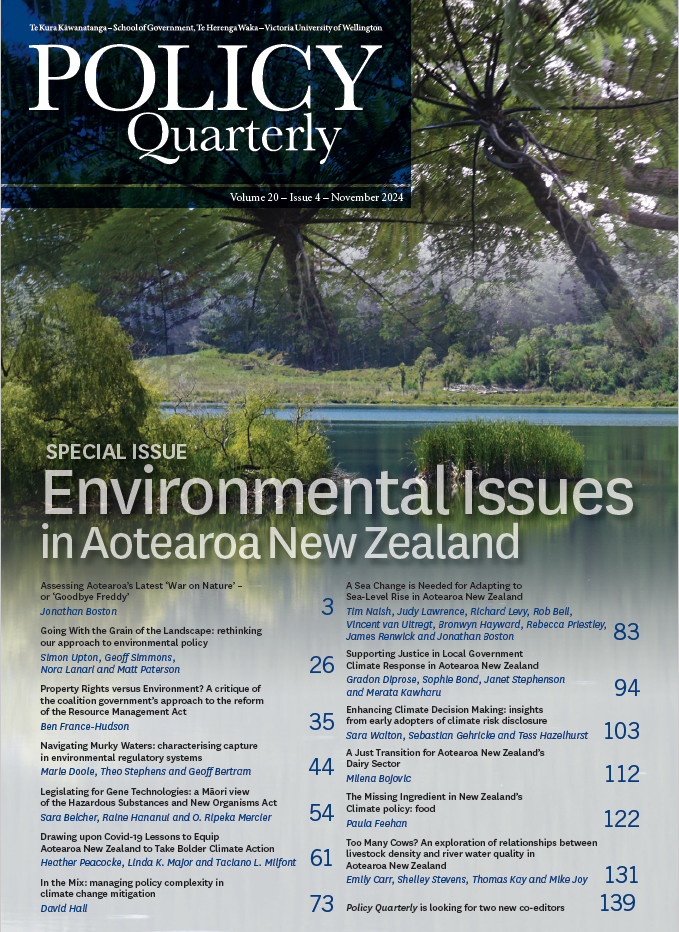Navigating Murky Waters: characterising capture in environmental regulatory systems
DOI:
https://doi.org/10.26686/pq.v20i4.9634Keywords:
regulatory systems, the environmentAbstract
Regulatory capture is the quest by vested interests to exercise excessive influence on one or more aspects of a regulatory system. While conceptually simple, it is difficult to define and thus hard to diagnose and mitigate. In the environmental arena, sound regulation is at risk from, among other things, amorphous and contested conceptualisations of the ‘public interest’, politically salient asymmetries and scant institutional recognition of the breadth and depth of capture impacts. This article examines some indicative scenarios to illustrate potential impacts of capture and characterise motivations, conditions and outcomes that enable capture. We propose a wide-boundary definition which frames capture as a risk present throughout a regulatory system and delineates several potential types of capture and their characteristics.
Downloads
Downloads
Published
Issue
Section
License
Permission: In the interest of promoting debate and wider dissemination, the IGPS encourages use of all or part of the articles appearing in PQ, where there is no element of commercial gain. Appropriate acknowledgement of both author and source should be made in all cases. Please direct requests for permission to reprint articles from this publication to Policy-Quarterly@vuw.ac.nz.



